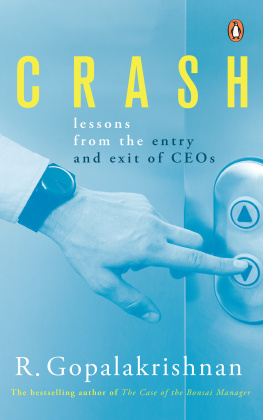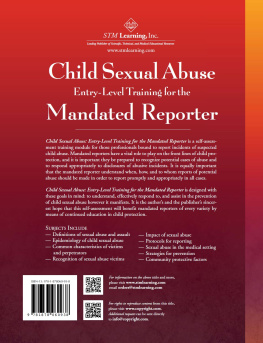Appendix A Collateral Consequences of Convictions: State-by-State Restrictions
W HEN YOU RECEIVE A SENTENCE for a criminal conviction, you may be shocked to discover that you also face a variety of life-long sentences restrictions on what you can and cannot do in reference to employment, licensing, certification, education, finance, housing, government benefits, voting rights, and travel. Indeed, you may quickly discover that you will never be completely free, since your conviction comes with conditions. Known as collateral consequences of convictions, these restrictions are something most ex-offenders are not aware of until they are released from jails and prisons and encounter the street-level realities of being an ex-con.
Employment remains the single most important accelerator for re-entry success. Without a decent job, life on the outside for ex-offenders can be very difficult. Therefore, its extremely important that newly released inmates quickly find a job that enables them to succeed at re-entry acquire affordable housing and transportation, minimize debt, become banked and financially stable, and acquire a variety of important support services relating to food, clothing, physical and mental health, substance abuse, and education.
However, many ex-offenders face employment and related barriers based upon the nature of their convictions. If, for example, you have been convicted for fraud, your job options relating to financial institutions will be limited. If youve been convicted of a sex crime, youll be prohibited from acquiring jobs that deal with the care of children and the elderly. Indeed, various states prohibit convicted felons from acquiring jobs relating to finance, health care, education, children, and law enforcement. Knowing which states prohibit ex-offenders from entering certain occupations can be difficult for many ex-offenders who dont know where to find such information.
A great deal of employment misinformation, including urban legends, affects ex-offenders who wish to re-enter the work world until now. The good news is that the American Bar Association has created a very useful interactive tool for identifying employment and other restrictions on ex-offenders. Known as the National Inventory of Collateral Consequences of Convictions, this website should be used by all ex-offenders who need to be aware of legal restrictions affecting their futures:
www.abacollateralconsequences.org
It includes an interactive state map (www.abacollateralconsequences.org/map/) for identifying and searching multiple jurisdictions on a variety of restrictive criteria. Its search feature enables users to simultaneously explore ABAs database by three different consequences: categories, types, and offenses:
www.abacollateralconsequences.org/search/?jurisdiction=15
Consequence categories include restrictions relating to:
Employment
Occupational and professional license and certification
Business license and other property rights
Government contracting and program participation
Government loans and grants
Judicial rights
Government benefits
Education
Political and civic participation
Consequence types include restrictions by:
Mandatory/Automatic
Discretionary
Discretionary (waiver)
Background Check
N/A General Relief
Consequences offenses include restrictions by:
Any offense (including felony, misdemeanor, and lesser offense)
Any felony
Any misdemeanor
Crime of moral turpitude
Crimes involving fraud, dishonesty, misrepresentation, or money-laundering
Crimes of violence, including person offenses
Weapons offenses
Controlled substances offenses
Sex offenses
Public corruption offenses
Election-related offenses
Motor vehicle offenses
Child support offenses
Other
N/A (background check, general relief)
Appendix B Your Re-Entry Success IQ
H OW WELL PREPARED ARE EX-OFFENDERS FOR re-entering and succeeding in the free world? There are no right or wrong answers to the following exercise. Be aware that it is a very long and thorough exercise it may take 30 minutes to complete. Most of the issues included here relate to the re-entry success process, which is outlined in another book The Ex-Offenders Re-Entry Success Guide (Impact Publications, 2016). The exercise is designed to give ex-offenders useful feedback by measuring their current level of re-entry information, skills, and strategies as well as identifying those they need to develop and improve. They identify their level of re-entry competence, or how well prepared they are for re-entry, by completing the following exercise:
INSTRUCTIONS: Respond to each statement by circling which number at the right best represents your situation.
SCALE: 1 = Strongly disagree
2 = Disagree
3 = Maybe, not certain
4 = Agree
5 = Strongly agree
Getting Ready for Freedom Day
| 1. | I know my release date. | 1 2 3 4 5 |
| 2. | Ive been preparing myself for release. | 1 2 3 4 5 |
| 3. | I have a written re-entry plan that covers thefirst 180 days after my release. | 1 2 3 4 5 |
| 4. | I have someone waiting to help me onthe outside. | 1 2 3 4 5 |
| 5. | Ive changed a lot for the better since I firstcame here. | 1 2 3 4 5 |
| 6. | Im confident I can make it on the outside. | 1 2 3 4 5 |
| 7. | Ive stayed out of trouble while incarcerated. | 1 2 3 4 5 |
Responsibility and Forgiveness
| 8. | I know why Im here; Ive come to terms with my situation. | 1 2 3 4 5 |
| 9. | Ive taken responsibility for my actions. | 1 2 3 4 5 |
| 10. | I plan to never lie, make excuses, or blame others for my problems. | 1 2 3 4 5 |
| 11. | Ive taken responsibility for turning my life around. | 1 2 3 4 5 |
| 12. | Ive asked for and received forgiveness from myself and others. | 1 2 3 4 5 |
| 13. | Ive decided to change my life so that Ill never again end up here. | 1 2 3 4 5 |
| 14. | Ive committed myself in writing (personal contract spelling out what I need to do by specific dates) to change my life. | 1 2 3 4 5 |
| 15. | I usually take responsibility for my own actions rather than blame other people for my situation or circumstance. | 1 2 3 4 5 |
Anger, Rage, and Stress
| 16. | I seldom get angry with others. | 1 2 3 4 5 |
| 17. | I avoid getting into verbal or physical confrontations. | 1 2 3 4 5 |
| 18. | If I get angry at anyone, its usually myself. | 1 2 3 4 5 |
| 19. | No one is angry with me. | 1 2 3 4 5 |
| 20. | I keep my stress under control. | 1 2 3 4 5 |
| 21. | I regularly exercise both my body and my mind. | 1 2 3 4 5 |
Purpose and Goals
| 22. | I believe I have a purpose in life. | 1 2 3 4 5 |
| 23. | I know what I both like and dislike about my life. | 1 2 3 4 5 |
| 24. | I try to live a purposeful life by being of value to others. |






